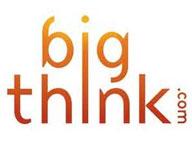Faculty News
—
In an in-depth Q&A, Professor Aswath Damodaran offers his thoughts on valuation, corporate finance and advice for investment professionals
—

Excerpt from Forbes -- "The most egregious valuation mistake that I see investment professionals make is mistaking pricing for valuation. Most investment professionals don’t do valuation, they do pricing. What I mean by that is that you price a number to a stock based on what other people are paying for similar stocks. Any time you use a multiple comparable you’re not valuing the company, you’re pricing a company."
Faculty News
—

Excerpt from Forbes -- "The most egregious valuation mistake that I see investment professionals make is mistaking pricing for valuation. Most investment professionals don’t do valuation, they do pricing. What I mean by that is that you price a number to a stock based on what other people are paying for similar stocks. Any time you use a multiple comparable you’re not valuing the company, you’re pricing a company."





















